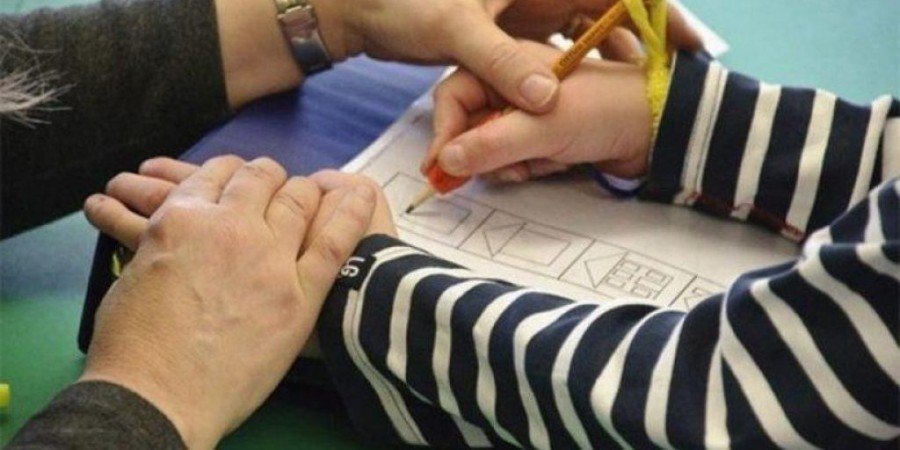
The issue of the need to support children with disabilities and chronic illnesses by specialized companions, such as nurses, as well as the problems that arise in special education, was discussed in today’s session by the Parliamentary Committee on Education and Culture. As emphasized in the Committee, every child has the right to education, and the state must ensure it.
It was also noted that timely and adequate staffing of schools is important concerning companions, such as nurses, for children with disabilities and chronic illnesses.
It was added that where there is a need for a companion who should be a nurse or caregiver, this should be done immediately.
It was emphasized that the existing legislation needs to be changed as it dates back to the 1970s, with the last amendment occurring in 1999. Additionally, it was mentioned that the existing legislation is not fully implemented in a way that helps all children based on their individual needs and specificities.
Pavlos Mylonas, the President of the Parliamentary Committee on Education, stated after the session that a huge issue is special education, which touches upon the aspect of empathy and understanding of others’ problems, the need for support for those who require it.
When asked about how many children need companions and how much funding is needed to meet the needs of these children, Mr. Mylonas said that they were given a number for nurses because there are children who require nurses, specialized personnel, not just companions, and the number is around 90 for this year.
“The cost is not high. It is very low. We must prioritize the needs of education and training. We can find the millions and gradually start with targeted, organized efforts through long-term strategic planning,” he added.
Pavlos Alampritis, Member of Parliament from DISY, stated that “our general principle is that every child should have the support they are entitled to according to their needs.”
“Some of the issues we discussed were the evaluation of children’s needs by regional committees, respecting the recommendations of specialists, avoiding limitations on the number of companions, and addressing unmet requests for companions. The evaluation processes of needs must be expedited to avoid delays in decision-making and to prevent injustice towards children,” he noted.
Mr. Alampritis continued, stating that they expect requests for evaluation to be examined within one, two, three, or four months at the beginning of the year.
“We need to strengthen the institution of speech therapy and incorporate occupational therapy to support these children. Regarding the hiring of companions, it should be based on the needs of the children. However, we must also upgrade the institution of companions. The new government needs to modernize legislation dating back to 1999 and decide whether to staff the Committee for the Evaluation of Children’s Needs or take a different approach to meet the needs of these children,” he added.
Christos Christofides, Member of Parliament from AKEL, stated that once again, they discussed the issue of inclusive special education in today’s session of the Committee on Education.
“It is a critical issue that concerns thousands of children and parents. Let me remind you that we have legislation from 1999. Since then, significant scientific and other developments have taken place, which in many advanced countries, especially in Europe, have advanced the treatment of children with disabilities. Unfortunately, in the last 24 years, we have not revised the legislation, especially since 2012, when we undertook contractual and other international obligations,” he noted.
Furthermore, he also mentioned that in the past ten years, “unfortunately, the approach has been to make patches, to have discussions without substance and content, and the previous government did not substantially address the overall revision and modernization of legislation regarding children with disabilities in schools.”
“Specifically, regarding companions, we have indicated to the Ministry of Education that the numbers of companions provided to regional committees are lower than last year’s needs, considering how we ended the school year, while it seems that the needs have increased. We are discussing these issues now because our goal is to assist the Ministry of Education in meeting the actual needs and properly supporting children with disabilities,” he added.
He also mentioned that “some children with disabilities were unable to attend summer schools due to the lack of companions.”
Regarding the dialogue initiated by the new government for the modernization of legislation on inclusive education, Mr. Christofides stated, “We have requested timelines because we have had enough of promises and dialogues. We want timelines for when we will finally be ready to take the step of a comprehensive modernization of the legislative framework for the benefit of children.”
Simultaneously, Mr. Christofides stated that they have demanded the Ministry of Education to provide them with the training plan for companions.
“We have individuals who accompany children with disabilities, and they need psychological and pedagogical training, among other things. As we were informed the last time we discussed this issue, in the past two years, these individuals have received only one hour of training, and many of them do not even have a university degree. I don’t say this critically; these are the realities we face. Therefore, these individuals need support and training,” he added.
Mr. Christofides also mentioned that they will continue to monitor the progress of the issue throughout the summer.
“As you know, the summer period is crucial for education as it sets the stage for developments in September. Our goal is to help ensure that the school year starts as smoothly as possible for a school that is deserving of our children, through our proposals, recommendations, and observations,” he concluded.
Andreas Apostolou, Member of Parliament from EDEK, stated that when this issue was brought up for public discussion, namely the need for specialized companions such as nurses for children with disabilities and chronic illnesses attending schools to ensure their safe and uninterrupted education, “we said that we open it up for all children, for every child in need of this particular support.”
“Although initially this request found support from the Ministry of Education but not from the Ministry of Health, after the public discussion that took place and after today’s initiative to discuss the issue in the Education Committee, we are pleased because the issue is heading towards a solution for all children. We have been officially informed by the Ministry of Health that there are 12 requests from parents of children with serious disabilities and chronic illnesses who require the accompaniment of a nurse to ensure their safe attendance at schools,” he added.
Mr. Apostolou stated that the discussion is now officially opened, and the process is being institutionalized so that these cases can be evaluated. There is a clear commitment from the executive authority that those cases scientifically evaluated and approved in September, with the new school year, will have a nurse or any other specialized companion accompanying them to enable them to attend public schools.
“When we believe that the goal has been achieved, and after this discussion that has opened, we have achieved something that for years was simply kept in a drawer at the Ministry of Health and was not evaluated.” However, the bigger picture regarding the education and inclusion of children with disabilities in our public schools is not just this, and we are pleased because the new Minister of Education, Ms. Athena Michaelidou, with her scientific background and sensitivity, recognizes the fact that the legislation for special education currently in place has reached its limit,” he added.
He also mentioned that in private discussions and meetings with the Minister, they have been informed that a discussion will soon begin regarding the creation of a new framework that will essentially open another cycle.
“This is the cycle we want and the cycle that, as a European country, we are obliged to implement based on the convention we have signed regarding the rights of persons with disabilities. It is the framework of inclusive education, where every child can have reasonable adjustments and support, so that we can achieve inclusion and they can attend their class with their classmates without needing any support outside the framework of learning and the class they belong to,” he noted.
Therefore, Mr. Apostolou said, “I hope that the issue of children who truly need a nurse will be resolved by September.”
“I truly hope that the issue of companions, in a broader sense, will be managed in such a way that when schools open in September, we, as the Parliamentary Education Committee, will not face the same issues we face every September. But most importantly, I hope that the efforts of this Minister, with whom we agree and support, will be completed as soon as possible, and our country will turn a new page regarding the support of children with disabilities and their attendance in our schools,” he concluded.
Source: ΚΥΠΕ


